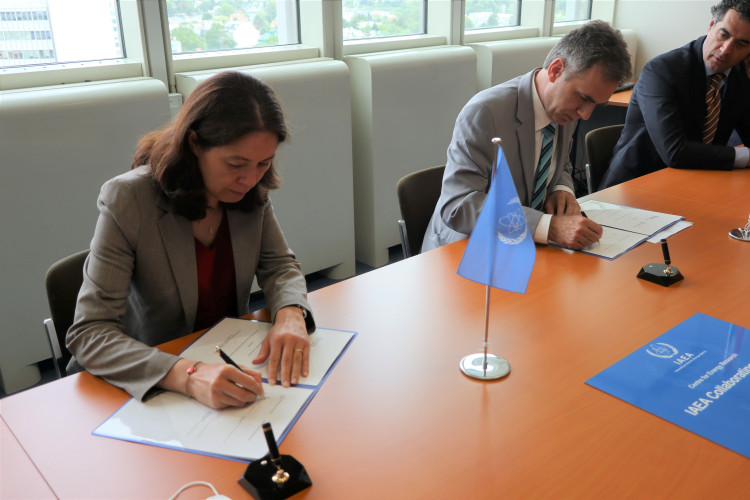By helping to determine the origin and history of nuclear and other radioactive material out of regulatory control, such as when material is lost or stolen, nuclear forensics can provide vital answers that guide criminal investigations and assist authorities further improving a national nuclear security regime.
Hungary’s Centre for Energy Research was the first IAEA Collaborating Centre in the area of nuclear security, with a focus on nuclear forensics. With its recent re-designation for another four-year period (2021 to 2025), its close cooperation with the IAEA will continue in this specialized field.
“Nuclear forensics has a crucial role in a national nuclear security regime, not only to support radiological crime scene management as part of the response to illicit and criminal acts, but also as a preventive measure that can help to discourage these kinds of acts,” said Lydie Evrard, IAEA Deputy Director General and Head of the Department of Nuclear Safety and Security. “The Centre for Energy Research possesses internationally recognized leading knowledge and capacity in the field of nuclear security, and especially in nuclear forensics.”
The Centre has supported the IAEA and its Member States by providing subject matter expertise and advanced laboratory equipment for nuclear forensics, hosting nuclear forensics training programs, implementing expert missions, participating in coordinated research projects, and supporting the development of IAEA Nuclear Security Series publications.
Nuclear Forensics has a long history in Hungary, dating back to the 1990s. Over the last decade, the Centre’s knowledge and capacity in the field of nuclear security, and especially in nuclear forensics, has rapidly developed, thanks to support from the IAEA






